Jonathan Raban: I felt pretty happy that I was still alive
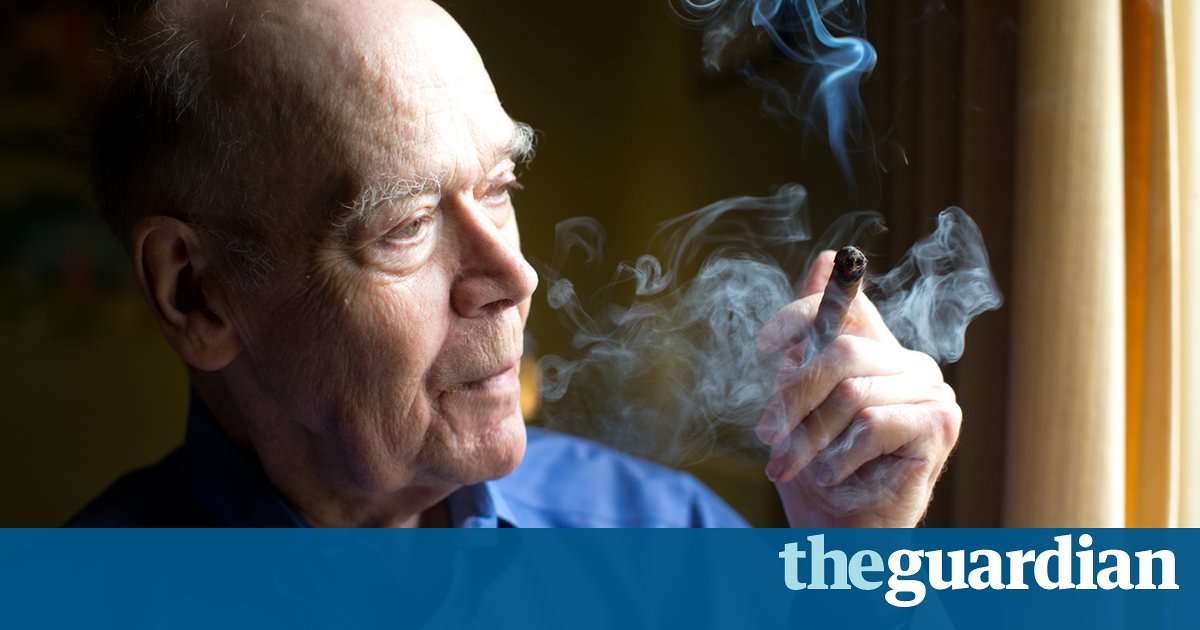
The author on his recovery after a stroke and his fears for a dis-United States.
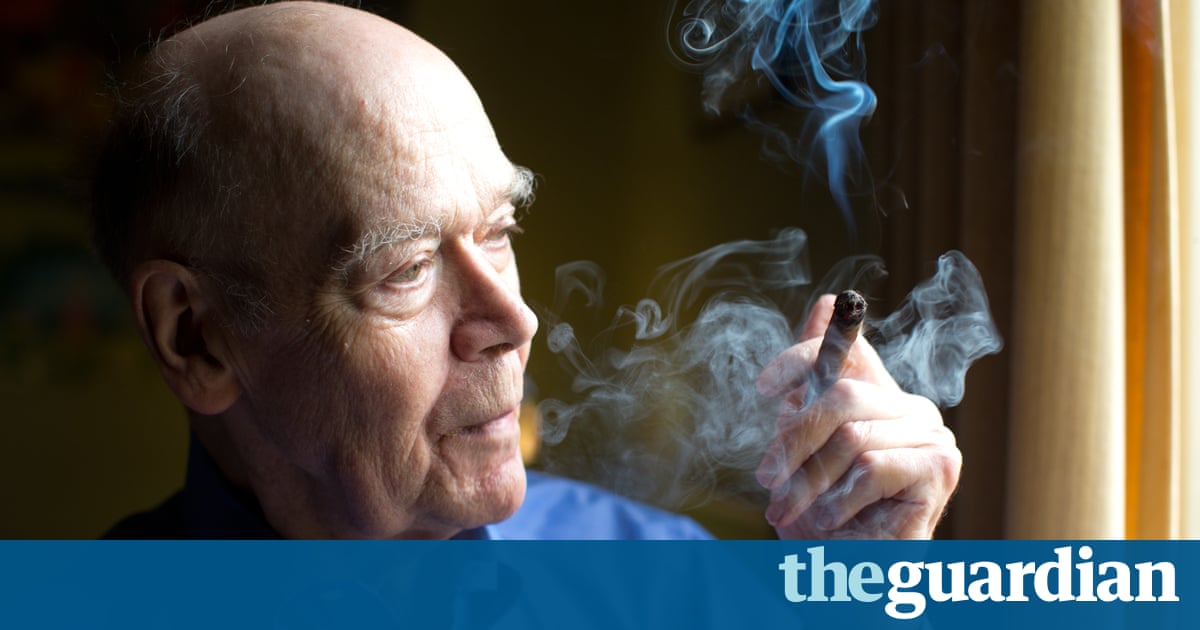
On 11 June 2011, a few days before his 69th birthday, Jonathan Raban was sitting with his daughter Julia at home in Seattle. He’d felt foggy and out of sorts since waking. Having reheated a casserole, he looked down to see that, try as he might, he couldn’t make the knife in his right hand touch the food on his plate.
His voice lifts in remembered surprise. It was very strange. I said to Julia: “I think I’m having a stroke.”
He was. A few hours later, Raban was in a hospital in the north of the city, looking at scans of his brain. The stroke was haemorrhagic, and massive: the damage to the right side of his body would be impossible to erase.
Carefully balancing a glass of red wine with his good hand, he gestures down at the wheelchair he now uses. Not quite instantly, but within a very few weeks, I was transformed into an old man. A second later, he concedes gruffly: I did feel pretty happy that I was still alive.
Appropriately for a man best known for his nautical writing, Rabans home feels rather like the upturned hull of a boat, with coffee-coloured redwood beams and a clutter of charts, sailing photos, engravings and mock-ups of the covers of his books. Every so often theres the drone of a seaplane coming in to land.
As soon as he got home from rehab,Raban did what he has always done: he began to write, and to research accounts of other peoples strokes (mostly unreadable, he grunts), English social history, his parents letters; searching for a way to braid the experience with the other skeins of his life.
I remember a doctor came to the rehabilitation ward, about my age, and said: Oh, youre the one who used to be a writer. I told him: Im still a writer, and I intend to write about this.
Raban talks in unhurried, intricately woven sentences, languid vowels barely touched by two decades in the US; it feels a little surreal to encounter him here in the Pacific Northwest. But Seattle, he goes on to explain, is as close to a home as he has found. Born in Norfolk in 1942 and educated at the University of Hull where he became friendly with Philip Larkin he started out as an academic. But as his anthology-cum-memoir For Love and Money (1989) attests, he lasted only a few years, writing fiction and journalism during University of East Anglia vacations and trying to gain a ticket of entrance to the city at the end of the line. He launched himself as a freelance writer in London in 1969, lodging with the poet Robert Lowell and becoming part of the bibulous in-crowd that centred on Ian Hamiltons magazine New Review.
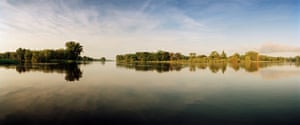
Even the capital seems to have been a temporary halt. Within a few years Raban was flitting around the Middle East, as recorded in Arabia: Through the Looking Glass (1979); then floating down the Mississippi in an open-topped boat (Old Glory, 1981). Soon after that adventure, be bought a larger boat and piloted it around the British Isles. The project became Coasting (1986), which is as sui generis as Rabans other books part memoir, part rite of passage, part discourse on fluid mechanics, part sly satire on British islomania during the Falklands campaign. In the wake of Brexit, it is a salutary read.
Afloat, Raban writes, he found a sea-distance that matched his sense of estrangement from Britain, and the grounding stability that eluded him on land. But the thing that genuinely fascinates him, and makes his prose leap and surge, is water an eerily still North Sea off East Anglia, as calm and full of mercurial colour as a pool of motor oil; a corner of the north Pacific off British Columbia, like a bolt of grey silk, lightly undulating, that seeps its way into his brooding travelogue Passage to Juneau (1999).
The love affair began early, Raban recalls. Water, one way or another, hasbeen a means of escape for me from pretty much infancy. When Isawa river or a pond or a lake, Isawfreedom and solitude. I could behappy in those places, in a way that I couldnt be at home.
Raban has often written about his tussles with his father, an army captain-cum-cleric whose return from the second world war he brusquely resented as a child, and whose dog collar and cassock, with its greasy antique patina like the sheen on a blowfly, represented everything to rebel against. But his interest in literature is something he owes to his mother, who once wrote short stories for womens magazines.

She taught me to read, which was my one proficiency. My father gets all the attention, but partly thats because he intruded on this relationship with my mother. There is a curt laugh. I harboured the usual fantasy.
It seems not insignificant that his first published work, printed in John Londons Weekly when he was 17, concerned a child whose father is presented with a shattered china dog as a gift after returning from the war. Rabans writing has grown infinitely more sophisticated since then, but its leitmotifs struggles with overbearing authority, a search for refuge in a world that seems aslant have remained.
He insists his arrival in the US, tracked with droll self-scrutiny in Hunting Mister Heartbreak (1990), wasnt intended to be permanent he retains British citizenship but it seems appropriate that he alighted on the West Coast, the favoured destination for people wanting to slough off old lives and try on new ones for size. One of that books most moving chapters chronicles the time Raban spent with Korean immigrants to Seattle, whose travel-shocked recalibration to wide wide wide America is partly, one senses, his own. The section closes with Raban setting himself up downtown in a former luxury hotel; in his room is a gold-painted desk that had once been used by Elvis, and a name label reading Rainbird on the door.
Marriage to Jean, a dance critic and journalist in the city, swiftly followed; Julia was born not long after that, and is now in her mid-20s. Among the cavalcade of identities Raban has tried out during his 74 years, the one that really seems to fit him is fatherhood, which came late. Its a role he still seems enjoyably astonished by, and which has provided some much-needed anchorage. Though the relationship with Jean came to an end, Julia now lives nearby and the two see each other nearly every day.
Im interested in his thoughts on genre; though his books are filed in the travel sections of bookshops, does he feel himself to be a travel writer? He snorts. I see a travel writer as someone whos sampling other peoples holidays and writing a bright little piece about the glories of Weston-super-Mare or something. Bruce Chatwin bridled at being called a travel writer; when Songlines was shortlisted for the Thomas Cook award, he wrote a stiff letter saying that it was impossible for it to be entered because it was most certainly an invented journey. I feel sympathetic to that.
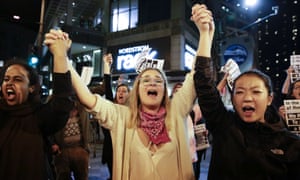
Wait didn’t Raban himself win the Thomas Cook? His grin is lizardish. “Twice. But I was hungry for prizes.”
Though travel often features in his non-fiction and the three novels Raban has so far written, he most often uses the verb intransitively, with no obvious destination in mind. I always thought of it as escaping from genre together, the mixture of memoir and travelling not going to get anywhere, but going for the goings sake. Perhaps the notion is pretentious, but its of what a journey could really be: a miniature scale-model life, which you would survive miraculously at the end.
Though he talks with wit and candour, there is a reserve about him that Englishness, perhaps that seems at odds with the intimate scrutiny of his prose. I ask if he’s ever regretted committing something to the page. The grin reappears. “I want to say, je ne regrette rien. Not much.”
Even in Passage to Juneau, which chronicles in agonising detail the death of his father and the collapse of his marriage to Jean? Even that.
The books only begin to make sense in long recollection, he adds: Writing about journeys, I have to forget the memory in its too-precise form and dive into the experience as if it were happening almost fictionally. Its a getting away from the experience in order to be able to write about it.
I’m curious about what happened to the boat. Oh, it was sold, even before the stroke. I’d written as much as I could about sailing. Also, my appetite for it diminished sharply after 2001. Want to meet Republicans in this part of the world? They all have boats.
It is impossible to avoid the subject of Donald Trump, whose victory Raban had been dreading for months, and which still plainly nauseates him. He’s been rereading Ian Kershaws biography of Hitler, an unlikely but nevertheless effective source of consolation: The consolation comes in the very different state of Weimar Germany and the contemporary US. For all Trump’s blustering authoritarianism, he would run straight into the checks and balances of America’s state and city governments.
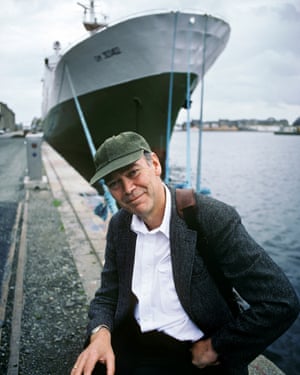
Soon after the election, Seattles mayor, Ed Murray, held a press conference to say that the city would remain a sanctuary city for undocumented immigrants, and similar statements have been made in New York, Chicago, San Francisco, Los Angeles and elsewhere.
So he’s optimistic, in a way?
“Trump may well turn out to be more of a danger for the rest of the world than for the dis-United States. But whatever happens is going to be a bloody, bloody mess.”
These days his journeys may be moreimaginative than real, but he fights shy of the idea that I’ve encountered Raban at rest. His thinking is as restless and ambulatory as ever; the wheelchair is another kind of narrative vehicle, a fine place in which to write and read. When we meet he’s halfway through the proofs of a biography of Jan Morris, whom he encountered in Cairo: A proper traveller, he writes in Arabia, atouchruefully.
Most of all, though, he’s mapping out the territory of the new book, and the connections he wants to draw between his early life and the lightning bolt that hit him in 2011. Progress is slower than he’d like; more meandering. There are far too many threads.
He sighs faintly, and reaches for thebottle of red. But then, a friend reminded me over email, there always are.